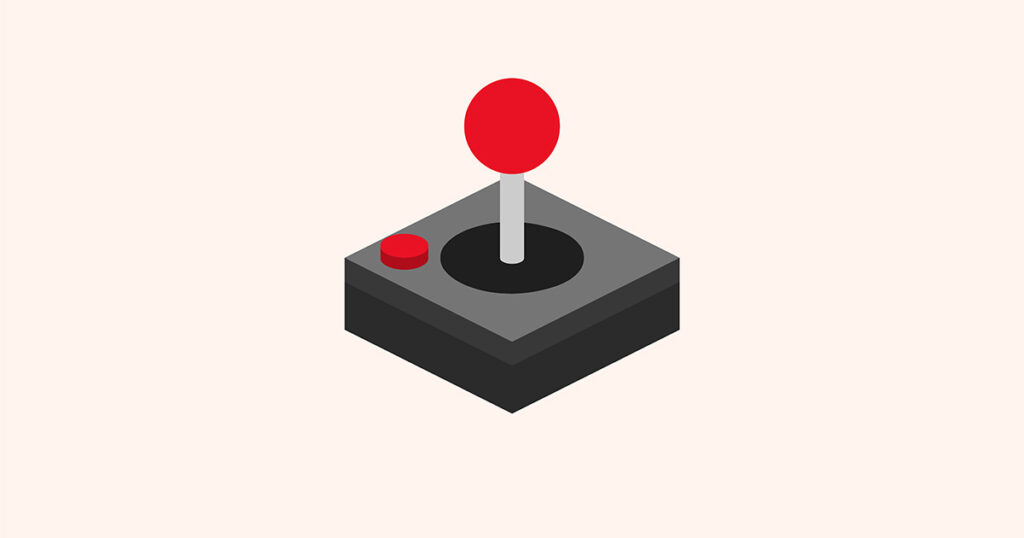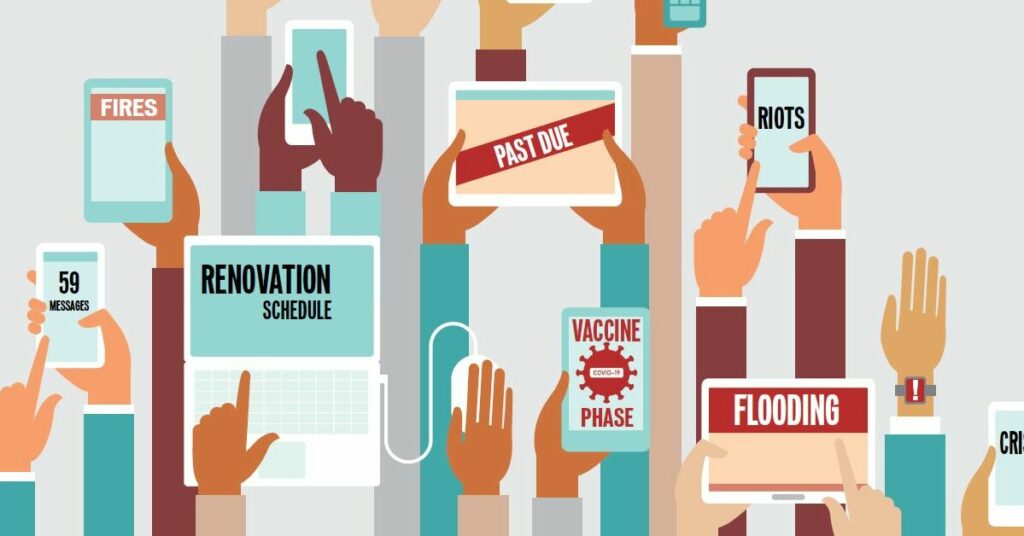You know that our virtual, increasingly connected world overflows with countless channels of information that constantly ping for your attention. You know that our society is so busy that it’s hard to find time for everything you need to do. But you probably did not know that we can attribute most of our busyness to artificial intelligence (AI) and that we face a real, deadly consequence of this busyness, a well-known but often misunderstood sin: Sloth.
“Wait, sloth!?” you say. “That’s the opposite of busyness.” Keep reading.
Life in the Arcade
When you hear “artificial intelligence,” maybe you think of artificial human or super-human intelligence like C-3P0 or Ultron. However, AI can actually be very mundane. In the AI community, it usually just means, “a construct that can interact with its environment to achieve a goal.” Generally, your analog house thermostat counts as AI. A thermostat is given the goal to maintain a temperature in your house, and it autonomously interacts with your HVAC to achieve that goal. If it does its job well, it’s considered intelligent for its job. It can’t do anything else, and it certainly can’t hold a conversation, but that’s irrelevant for the thermostat to be considered AI. Similarly, a computer like Deep Blue that played chess and beat world-champion Garry Kasparov is considered AI because it was good at its goal of winning chess games. It can’t do anything else, but that’s irrelevant for it to be considered AI. We have had AI in our lives for a long time, though recently the quantity has grown tremendously.
The internet makes it extremely easy to overload yourself with countless AI programs that constantly interact with you. Consider my average workday: My mind must constantly jump from fulfilling my work duties to checking a ping from my work chat to glancing at my calendar app for my next meeting to reading a text on my phone to resolving a message on one of my four email accounts to reading a research article I need to finish on one of my two dozen open internet tabs. When the work day is over, I pull out my phone to see news updates and floods of notifications from social media. My apps remind me about new online videos that I should watch and that it’s my turn on one of several online board games I am playing. I am tempted to check my phone often throughout the rest of the evening too, because my apps are interacting with the internet and updating even when I’m not looking, and I want to keep up with them.
Each of these AI tools begging for my attention is like one of many machines in a massive video arcade telling me “Play now!” or perhaps, “Game over. Please insert another coin to continue.” The arcade surrounds me with flashing lights and numerous screens vying for my attention. It emits an incomprehensible wash of sounds from countless unrelated speakers and conversations. It presents me with a sea of faces that flit back and forth under dim lights trying to get to their next machine.
The average American today lives inside a virtual arcade of AI tools much like this. The difference is that we can leave a video arcade whenever we want.
Restless Sloth
Sloth is one of the classic “seven deadly sins.” The Latin word is “acedia,” for “lack of care” or “apathy.” We often think of sloth as physical laziness, but it would be better described as spiritual apathy, which manifests in different ways. Sloth can manifest as laziness but also as restlessness. Restless sloth is a drive to do something, anything, other than what God gives you to do in each moment. You are guilty of sloth when you spontaneously decide to sleep in on a work day. You are also guilty of sloth when you know you need to bring dinner to your grandmother now before the ice-storm hits, but you decide to first finish writing that long email that could really wait until tomorrow. It might otherwise be good to write that email, but in that moment your concern for email distracts you from your God-given duty to care for your family. Eternally speaking, if your master calls you to come to the wedding banquet and you respond, “I have bought five yoke of oxen, and I go to examine them. Please have me excused” (Luke 14:19), then you have definitely succumbed to the deadly sin of sloth.
The virtual AI arcade trains your mind to be restless, and thus to be tempted with sloth. Your mind adapts to however you use it. If you stay in the virtual AI arcade trying to juggle too many interactions long enough, eventually you will keep that arcade mindset even when you step away from your devices. The internet never sleeps, and part of your mind is always thinking about checking for updates, always prepared to interrupt the current interaction with the next one. Your brain becomes like your web browser with multiple tabs open, and you can never seem to close them all and rest. But our Lord says, “Be still, and know that I am God” (Psalm 46:10).
I see this in my own family. Some evenings we’ll have time to just sit and talk outside on a nice evening, but if we’re not engaged in a task for too long one of us, maybe me, will get restless and pull out a smartphone to do something, even looking up an article about the strange sleeping habits of hummingbirds. Most people I know consider this normal. Since you are reading this article online, you are probably familiar with the arcade lifestyle. When you read my mention of the sleeping habits of hummingbirds, you might have even felt tempted to immediately look that up yourself and then resume this article afterward.
The arcade is not inherently sinful. A mindset that can juggle many different tasks at once is often very useful. But when you spend so much time in the arcade that your thoughts can’t stop being there, you open yourself to temptation. When you choose your AI instead of the people you are given to love, then it is most definitely sin.
The Love of Christ
Restlessness is tiring. But God says, “Six days you shall work, but on the seventh day you shall rest” (Ex. 34:21). Now, more than ever, we can take refuge in the saving rest that God brings. Jesus says, “Come to me, all who labor and are heavy laden, and I will give you rest” (Matt. 11:28). Each Sunday, the individuals of our congregations come to God’s wondrous altar to receive His nourishing gifts of Word and Sacrament, and when the preaching and music are done for the day, the individuals then amble out past each other, phones in hand, ready for their next arcade commitment while looking up articles about hummingbirds … wait, what?
Sloth is deadly. I’ve seen it in congregations across the country. Our restless need to interact with our AI leads us to treat the other members of our congregations as fellow arcade-goers, not as our brothers and sisters. We listen to the Word like individuals in an auditorium; we go to Christ’s Table to receive our individual cups and wafers; and as soon as the service is complete, we stretch and walk out like people leaving a movie theater. I’d imagine that in many churches members don’t know most of the other congregants’ names much less what is happening in their lives. Many churches have started issuing nametags to combat this.
It is written: “When you come together, it is not the Lord’s supper that you eat. For in eating, each one goes ahead with his own meal. One goes hungry, another gets drunk. … Whoever, therefore, eats the bread or drinks the cup of the Lord in an unworthy manner will be guilty concerning the body and blood of the Lord. … For anyone who eats and drinks without discerning the body eats and drinks judgment on himself. That is why many of you are weak and ill, and some have died. … So then, my brothers, when you come together to eat, wait for one another” (1 Cor. 11:20–21, 27, 29–30, 33).
And Paul continues, “For in one Spirit we were all baptized into one body — Jews or Greeks, slaves or free — and all were made to drink of one Spirit. … Now you are the body of Christ and individually members of it” (1 Cor. 12:13, 27).
Paul emphasized that the Eucharist is not merely bread and wine but also Christ’s literal body and blood. He also emphasized the need to recognize and care for each other at that meal as members of Christ’s Body. The Corinthians might not have been distracted by cell phones, but they still focused on their own individual needs over concern for others in Christ’s Body. We are members of Christ’s Body; we should act like it. It is not good for family members to each always go ahead with their own meals and fail to recognize each other, whether at home or in church. Apathy and love cannot coexist.
Christ says, “a divided household falls” (Luke 11:17). Our obsessive use of AI already divides us and is poised to leave us destitute. If you don’t know the names of your siblings in your congregation, take time after church to bridge that gap. If you see a member of Christ’s Body who always leaves without recognizing his siblings, pursue him.
AI is not to blame for our troubles. Our sinful nature corrupts whatever we use if we let it. Do not let your use of interactive tools perpetually suck you into the arcade. It will consume your energies until you have none left with which to interact, even within your own family.
“By this all people will know that you are my disciples, if you have love for one another” (John 13:35).
I don’t believe there’s any stark difference in the heart of a person on Sunday compared to the rest of the week: Any sloth in how we live our daily lives with our technology will be the same sloth we bring with us into church. But the love of Christ that flows from His Means of Grace to us in our churches can and should flow out through us also into the rest of our week and our world. We continually return in repentance to Christ and receive His forgiveness and His love and His words. Our sloth must daily drown and die and be replaced with the new man in Christ. And so we go and do for others as Christ has done for us.
Photo: Getty Images






Electronic screens were known to present an often unhealthy distraction decades before AI was employed to get eyeballs on web ads.
An admonishment I often heard as a kid on sunny summer Saturdays: “Turn off the boob tube and go play outside!”
I agree one hundred percent with everything you said. But things are actually getting even worse today, because “Big Brother” has grown more ominous, more greedy for power, more reckless, and more determined than ever to replace God, declaring Him irrelevant, and intent on developing and transforming the world. Reports indicate that the Western financial markets are about to go to digital currency on an enormous scale which records the purchases of citizens for every transaction. You are already being tracked anyway, but the new system expands it much further.This works out according with corporate banks and commercial and individual applying ESG scores, coming soon to your neighborhood. ESG stands for “Environmental, Social, Governance.” The new economy will give out scores for compliance of institutions and individuals with respect to your carbon footprint, acceptance of climate change as “established science,” your social views on LGBTQ, social justice, and whether you do or do not support the values imposed. No room for disagreement. No room to debate the issues on substance. The coming days of AI are growing more ominous, and faithful Christians are in the crosshairs. This will work out to denial of digital purchases on things deemed unacceptable, as your own money will be controlled.
I think Christians and churches, as well as ministries, need to discern the times, because as President Biden recently admitted that a new world order is coming, think about how this was previously labeled a conspiracy theory. The anti-Christian values we see today in our pagan America should cause us all to stop and recognize what is actually happening. When a Supreme Court nominee states during nomination proceedings that she cannot define a woman, something which a grace school student can do easily, we know that we live in a spiritually and morally broken country, and even common sense and reason are victims. Technology and AI are more than just innovative means to power and control, but are being used to create a new world order which will be opposed to our faith on a historically significant scale. In these days, it is well for Christians to put in their armor, draw closer to the Lord, and prepare for evil days. Come quickly, Lord Jesus. Soli Deo Gloria.
Spot on!!! And very well written! 🙂